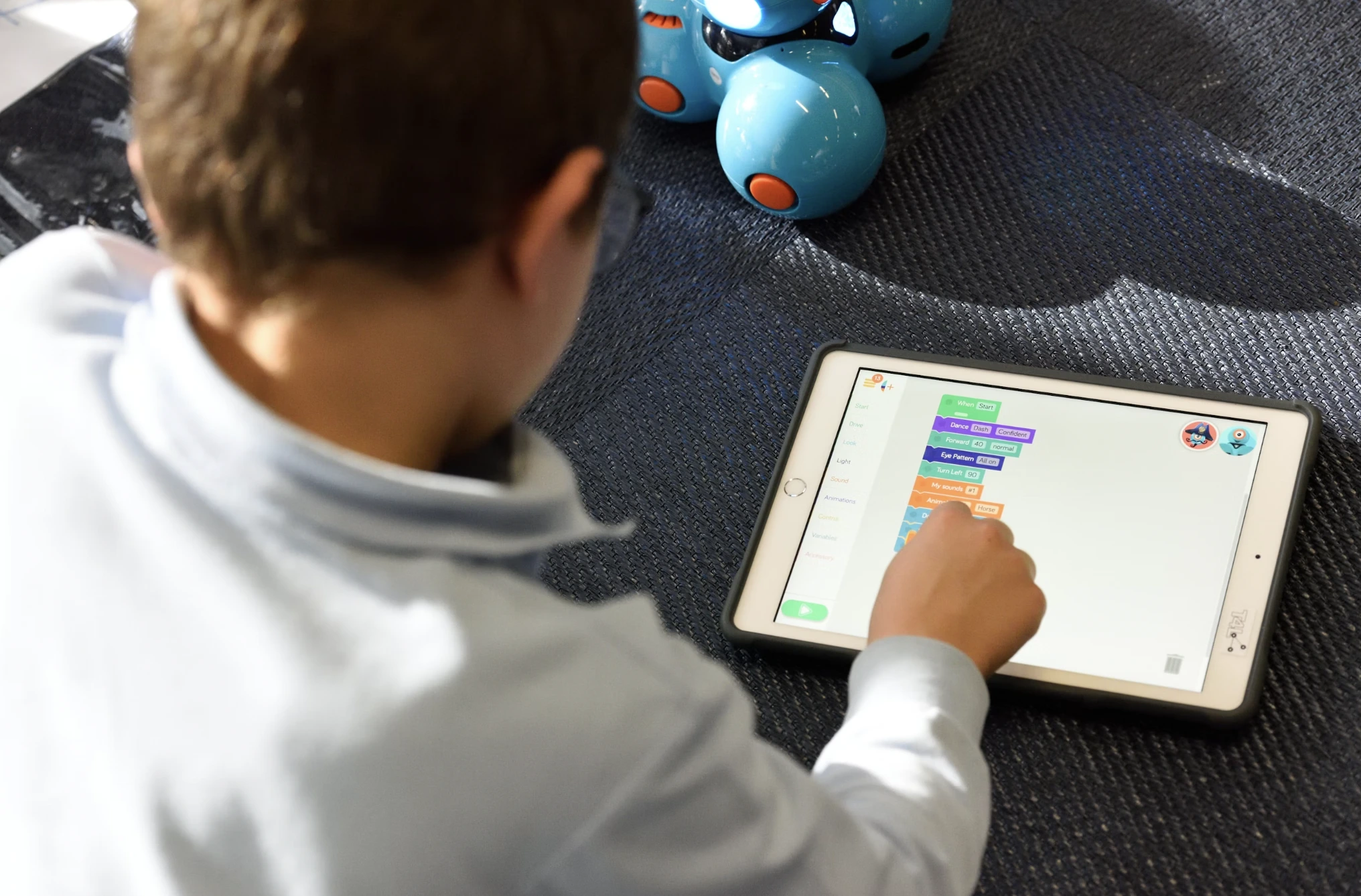
Image by stem.T4L, from Unsplash
AI Self-Study Rooms Gain Popularity In China As Affordable Alternatives To Private Tutors
A new business model in China’s education sector, the “AI self-study room,” is gaining attention and sparking mixed reactions. These rooms differ from traditional study spaces by equipping each desk with a tablet-like AI learning device that manages both lessons, and exercises for students.
In a Rush? Here are the Quick Facts!
- AI self-study rooms in China use tablets to manage lessons and exercises.
- AI tablets offer affordable alternatives to private tutoring amid government crackdown.
- Experts highlight limitations of AI tablets, including low engagement and limited functionality.
According to Huang, who manages a self-study room in Beijing’s Fengtai District, these AI self-study rooms combine learning devices, study supervisors, and a focused environment, as reported by the Global Times.
Students use the devices for online courses and exercises, while AI helps supervisors identify knowledge gaps and tailor study plans. Real-time learning reports are also provided for parents to track progress.
Rest Of World (ROF) noted that China’s educational device market is expected to reach $20 billion by 2026, fueled by a surge in AI-powered tablets. While personal educational tools like portable dictionaries have been around for decades, AI-driven technology has reinvigorated the sector, attracting attention from tech companies.
Despite the growing popularity of these AI-assisted learning spaces, opinions are divided. Indeed, Global Times reports that some critics argue that the devices do not truly utilize AI, viewing them as a marketing gimmick. Others highlight their potential in improving learning efficiency, quality, and access to educational resources.
A parent interviewed by the Global Times praised the interactivity of the AI devices, which analyze student performance and adjust questions to meet specific learning goals. In areas with fewer educational resources, AI is seen as a solution to inequality, offering personalized tutoring at a fraction of the cost.
Indeed one key factor driving the demand for AI tablets is a government crackdown on tutoring. China’s after-school education market, once serving 137 million students in 2016, has faced significant restrictions, as reported by ROF.
In response to growing pressure on students and parents, the government shut down a large portion of educational firms, revoking licenses for 96% of offline businesses and 87.1% of online ones, as reported by ROF. Despite the drop in tutor availability, demand remains high, leading many parents to seek alternatives like AI tablets for supplemental education.
A study by iResearch, reported by ROF, revealed that 56.3% of parents plan to allocate 10%–30% of their education budget to smart learning devices, with 15.7% willing to spend over 40%, as tutoring expenses decrease.
AI tablets have become particularly popular in less-developed cities, where parents often lack the knowledge or resources to help their children academically.
Indeed, using the AI study room costs 3,000 yuan ($411) per month, with additional charges on weekends. In comparison, hiring a teacher for private tutoring costs up to 500 yuan for two hours, as reported by the Global Times. However, while the AI self-study model is seen as a way to enhance educational equity, challenges remain.
Global Times notes that some students report issues with the devices, which may make errors or offer limited functionality. Critics also warn that the devices, marketed as AI, may simply be app bundles with basic features, lacking personalized learning.
Additionally, education professionals question the tablets’ effectiveness in improving student performance. Kelly Zhang, a former tutor and AI education company employee, noted to ROF, “These tablets don’t offer much beyond resources already available online.”.
Edward Wang, a former test-prep contractor, pointed to ROF that many students lack the focus and motivation to benefit from the devices. “Our data indicates that most video classes have an under 20% open rate and an under 10% completion rate,” he said.
Global Times further noted that experts recognize that AI in education has the potential to improve learning efficiency, bridge regional disparities, and provide personalized solutions that allow remote students to access quality education.
However, they also highlight challenges within the industry, such as low integration and inconsistent quality, which hinder its full potential, as reported by Global Times. Additionally, in is worth noting that tablet use has been associated with emotional dysregulation in children, causing anger outbursts.
Regulatory clarity is needed to guide the sector’s development. Professor Huang Changqin of the Zhejiang Key Laboratory of Intelligent Educational Technology calls for standardized testing and third-party accreditation for these AI-powered educational tools, as reported by the Global Times.
Public school purchases also contribute to the rise in tablet sales. Companies like iFlytek, known for its AI tablets, have secured strategic partnerships with local governments, incorporating their products into schools’ daily operations, says ROF.
Despite a 2022 government ban on compulsory sales of educational devices in schools, some schools continue to push parents to buy these tablets, as reported by ROF.


 Previous Story
Previous Story

 Latest articles
Latest articles 

Leave a Comment
Cancel